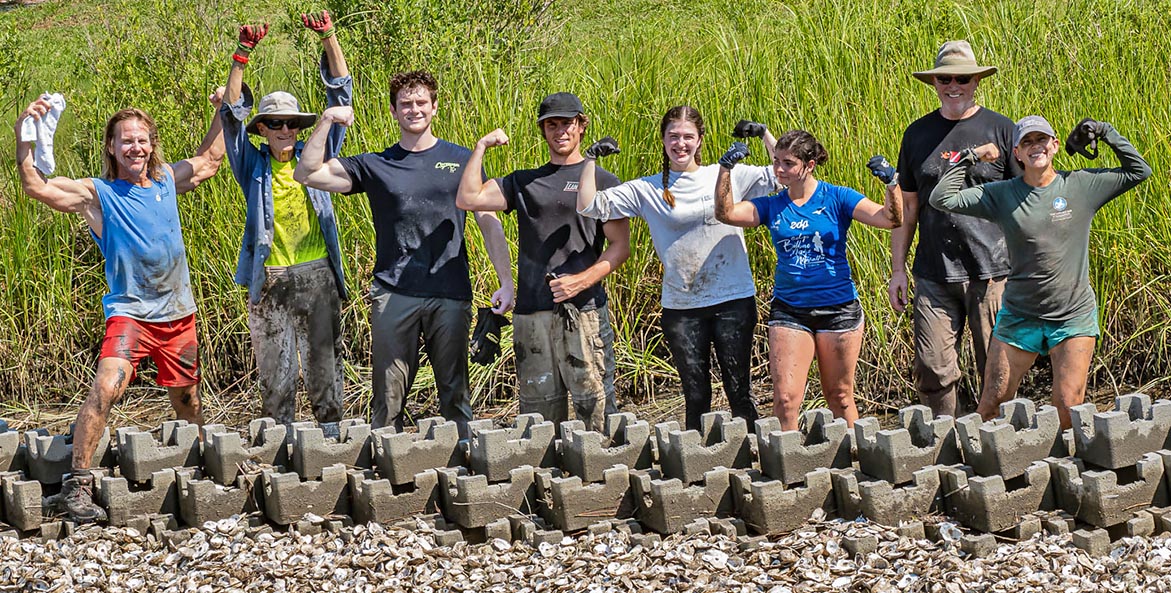CBF is fortunate to have the help of thousands of Bay savers who volunteer their time and who have demonstrated their commitment to a cleaner, healthier watershed. Every year, volunteers donate more than 25,000 hours to CBF programs that advance the Bay's health. The immediate results of their work are impressive. But the value of their undertaking for future generations is priceless. We salute our volunteers for their contribution to a better community and a restored Bay.
If you would like to become involved and have not volunteered before or would like more information, please complete our Volunteer Interest form.
If you are a corporate partner at the $5,000+ level—or are considering joining us at this level— and would like to work with a CBF staff member to find the right volunteer opportunity for your team, please complete our Corporate Volunteer Interest form.
Did you know that thousands of companies provide incentives for employees to volunteer with organizations like CBF? Use our lookup tool to see if your company provides paid volunteer time off or volunteer grants programs.
Ways to Volunteer
Whether it's planting trees and oysters, speaking up at town halls, or answering phones at one of our offices, there are plenty of ways you can get involved in our save the Bay work. Take a look below at the range of volunteer opportunities we offer.
In the Field
Stream and Shoreline Restoration
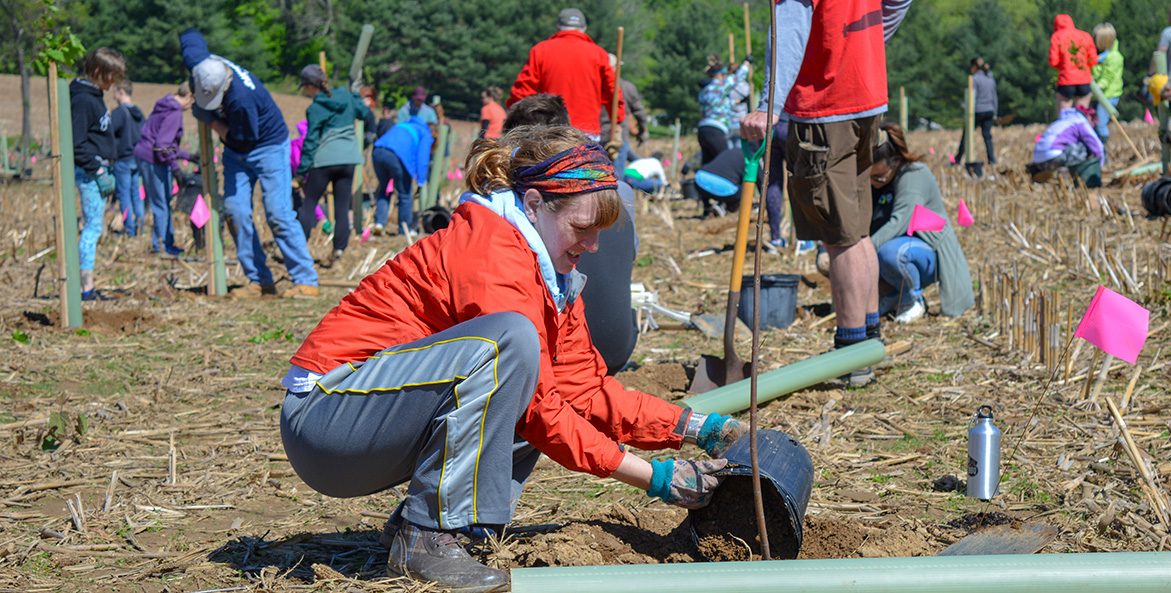
Trees are some of our most powerful partners in the work to clean our water.
Rebecca Long/CBF Staff
Planting native trees and shrubs along the banks of waterways is one of the most effective ways to keep polluted runoff out of streams. Creating living shorelines with native wetland plants and grasses helps restore habitat for wildlife, prevent erosion, capture sediment, and filter pollution. Check our calendar for current opportunities.
Oyster Restoration
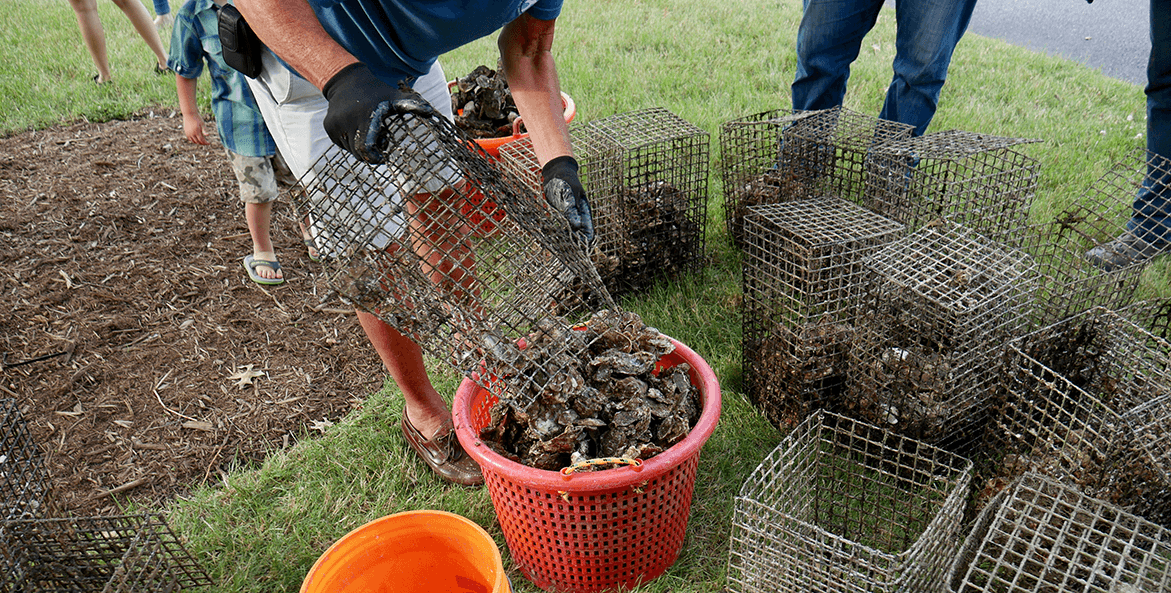
At the end of the oyster gardening season, gardeners will get to empty their cages and plant their oysters at oyster restoration sites across the Bay.
Wyatt Young
Before their dramatic decline, the Chesapeake's native oysters were a powerful natural force in the Bay ecosystem, filtering contaminants from the water and providing habitat for crabs and fish. To bring back this key species, CBF's oyster restoration programs grow native oysters and transplant them to sanctuary reefs. Learn more about oyster restoration in Maryland and Virginia.
Oyster Shell Recycling
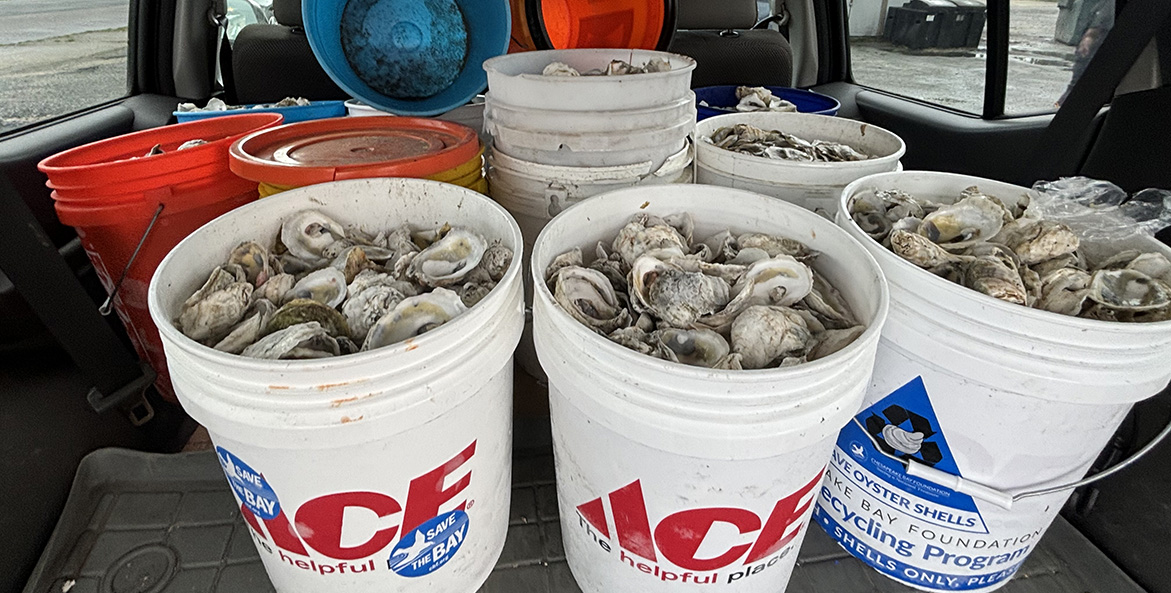
CBF Staff
Through our Save Oyster Shells recycling program, shells that would typically be thrown away are saved and used for oyster restoration projects. Oyster larvae attach to cleaned oyster shell and are provided in reef restoration projects and to oyster gardeners. Find out where to drop off your shells and which local restaurants participate in the program.
Clagett Farm
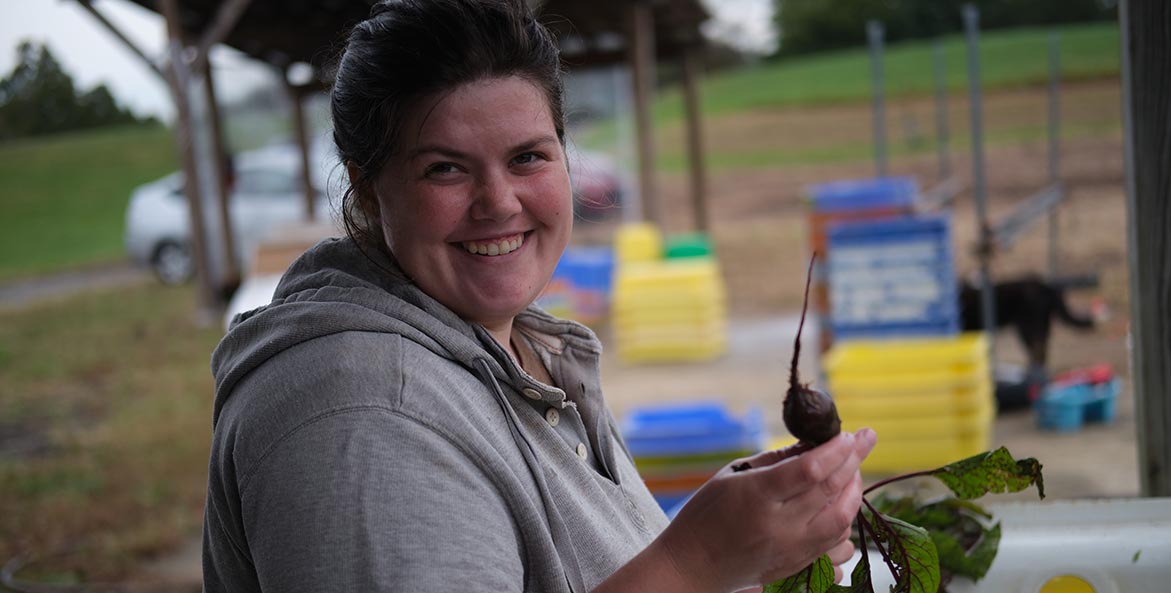
CBF staff and volunteers pick ripe vegetables and use reusable bins for distribution, cutting back on unnecessary plastic packaging.
Jared Planz/CBF Staff
During the growing season, there are opportunities to join us in the field at the 283-acre regenerative farm in Prince George's County, Maryland as we maintain the many diverse crops we grow for our organic vegetable CSA programs. Volunteers also assist in Clagett Farm's tree nursery, potting thousands of trees in the spring and helping to keep them healthy throughout the season. The trees can then be used for CBF restoration projects. Find seasonal volunteer opportunities on our calendar.
Clean the Bay Day
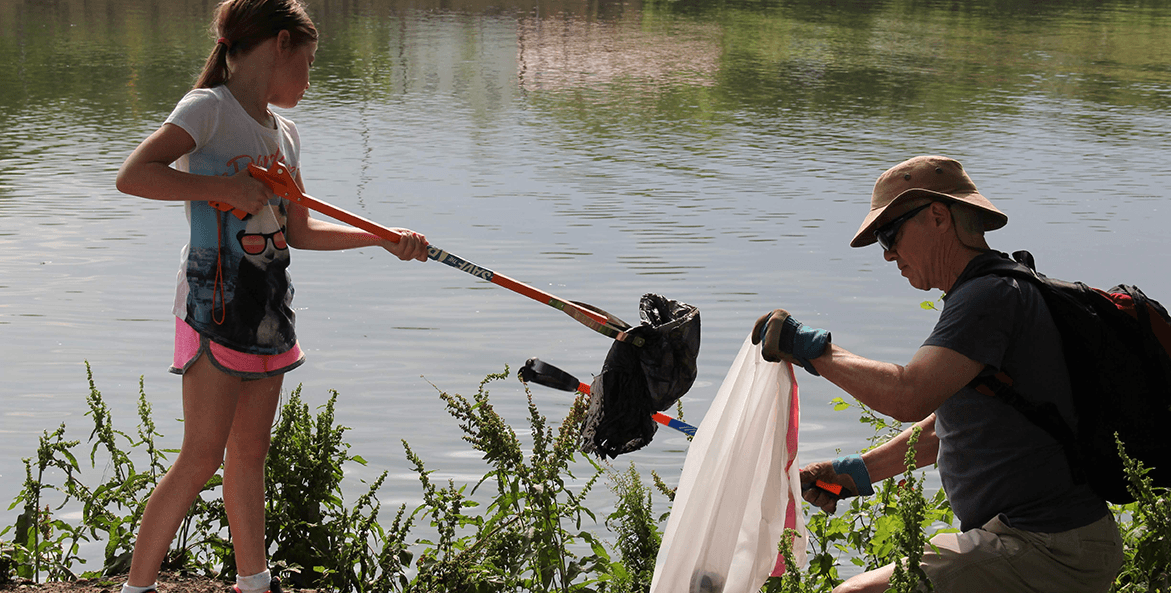
Picking up litter as part of Clean the Bay Day is an easy way to help save the Bay.
Kenny Fletcher/CBF Staff
Since 2000, CBF has sponsored one of Virginia's most effective clean-up efforts. Clean the Bay Day, held annually the first Saturday in June, now elnlists more than 7,000 volunteers to remove litter and debris from the state's waterways. From the the Shenandoah Valley to Virginia's Eastern Shore and from Northern Virginia to the North Carolina border, this impressive effort pulls more than 100 tons of trash from the Bay and its tributaries each year. Learn more about Clean the Bay Day.
In Your Community
Advocacy
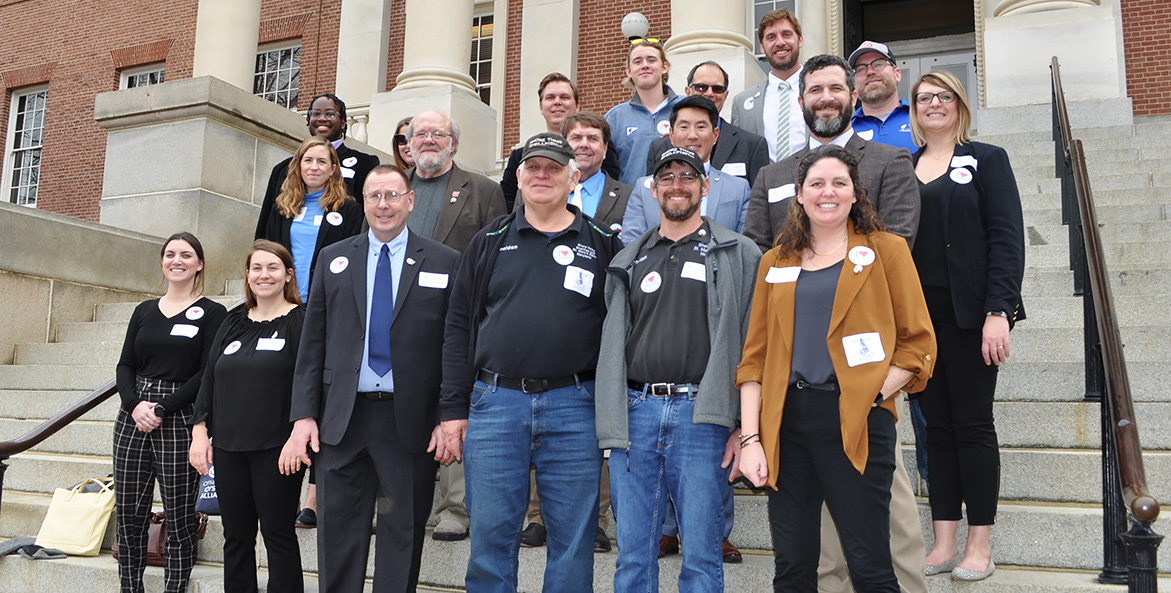
Oyster aquaculture advocates gather on the Maryland State House steps during their day of advocacy on March 2 for bills to help reduce regulatory delays for new aquaculture businesses and support the environmental benefits of the industry.
A.J. Metcalf/CBF Staff
CBF volunteer advocates speak for the Bay and its rivers and streams. They are the infantry in our fight for clean water, making their voices heard on public policy, legislation, development, and other issues that affect our waterways. Advocacy volunteers contribute at many levels. They show up at rallies, send e-mails, make phone calls, gather signatures for petitions, and remind citizens and public officials of the need to restore the Bay and its rivers and streams. Join CBF's Action Network.
VoiCeS
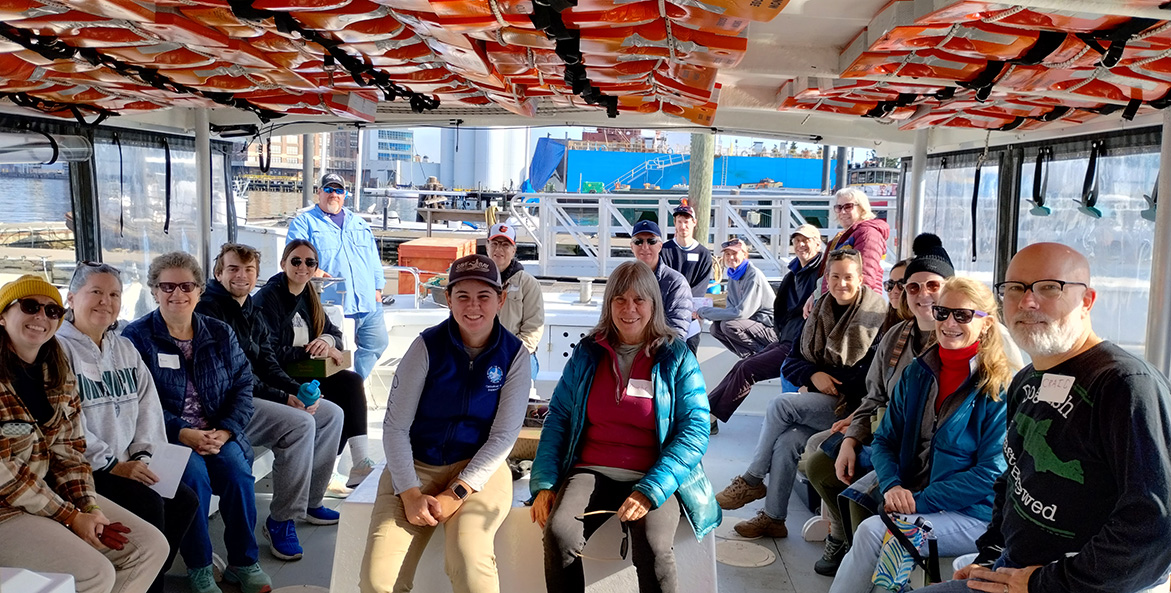
Julieta Rodrigo/CBF Staff
CBF's Volunteers as Chesapeake Stewards, or VoiCeS, program engages local volunteers and their communities and fosters a deeper understanding of the Bay watershed and the efforts to restore it. Learn more about CBF's VoiCeS Program.
Clean Water Captains
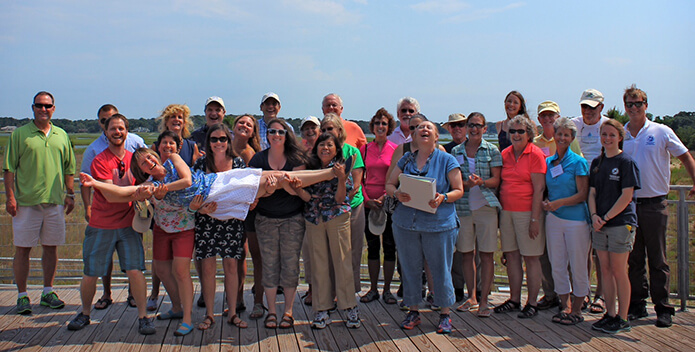
CBF Staff
Clean Water Captains are ambassadors for clean water in their communities. CBF staff can't be in all 92 localities that drain to the Bay, so we rely on captains to help be the eyes, ears, and voice for the Chesapeake Clean Water Blueprint. Clean Water Captains take action in support of clean water by sharing information with their neighbors, congregations, community, and elected officials to help raise awareness and help realize practical, effective, local solutions. Captains help find solutions that work to restore clean water in their communities. Learn more about being a Clean Water Captain in Maryland and Virginia.
Fairs and Festivals
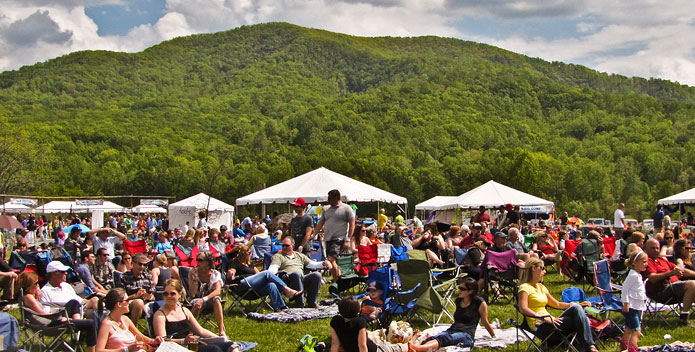
John Rodenhausen/CBF Staff
By staffing CBF displays at boat shows, riverfront festivals, oyster roasts, community celebrations, and more, CBF volunteers publicly share their support for the Bay. They represent CBF at the local level, explaining the issues and the actions that are needed to protect and restore the Chesapeake. Volunteers supply information, answer questions, and connect residents to CBF activities and advocacy issues in their own neighborhoods.
In Our Office
Internships
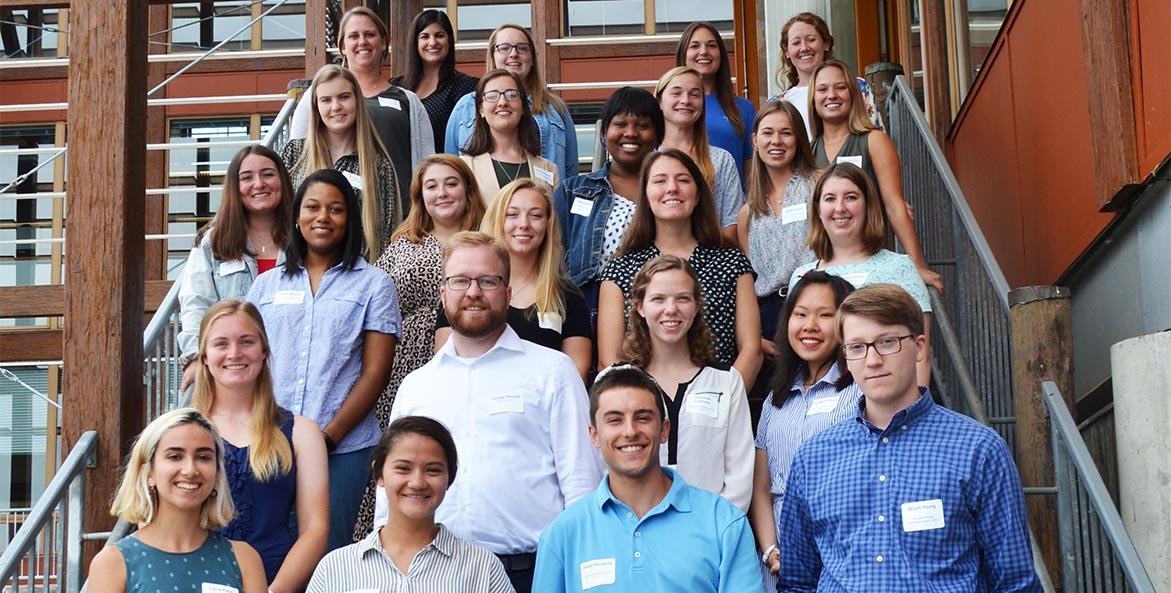
Each year, college students from across the watershed gain practical experience through CBF's internship program.
CBF Staff
CBF's offer a limited number of internships for undergraduate and graduate students. Interns have the opportunity to work with a wide variety of environmental professionals on a host of water-quality related issues. Interested students should check our Internship Opportunities web page.
Pro Bono Assistance
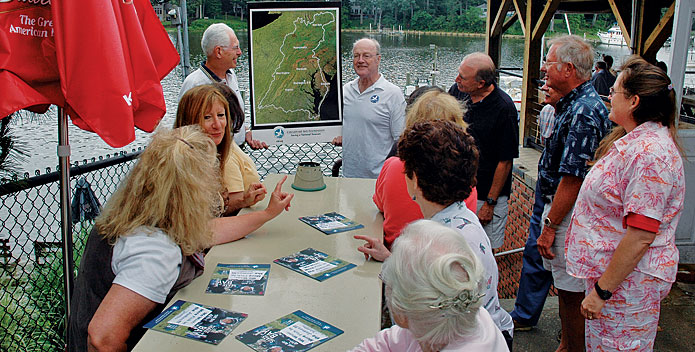
CBF Staff
Volunteering as a CBF pro bono volunteer is a great way to build professional skills while putting your talents to use to better your community and save the Bay. Whatever your talents—law, communications, finance, fund raising, to name just a few—please consider putting them to use for the Bay.
Administrative Assistance
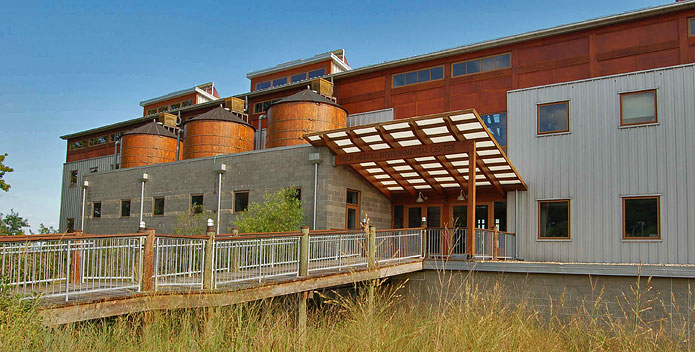
At CBF's office in Annapolis, volunteers take on a host of administrative duties, from data entry to conducting tours of our "green" building. They also contribute to communications projects, educational programs, and outreach activities.

